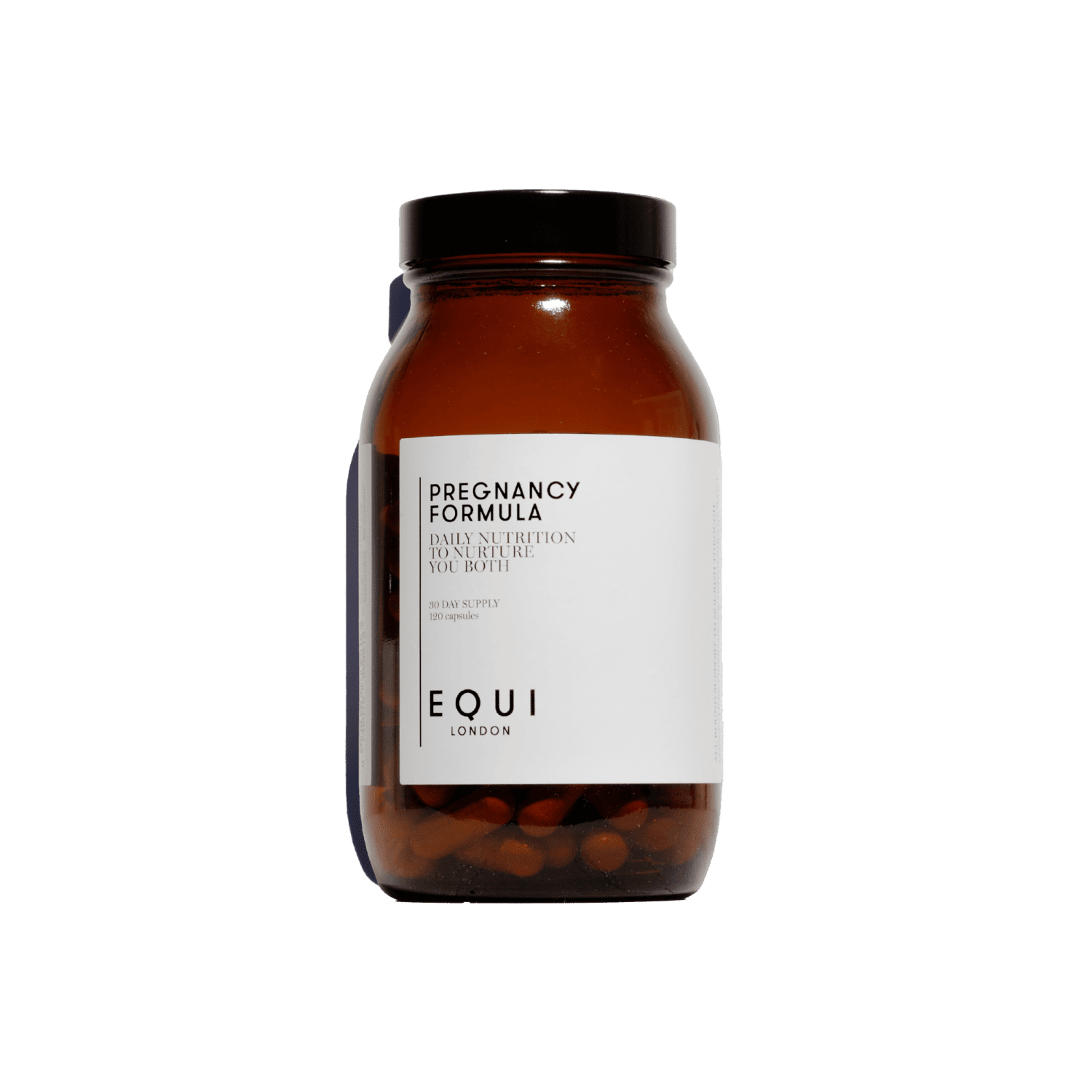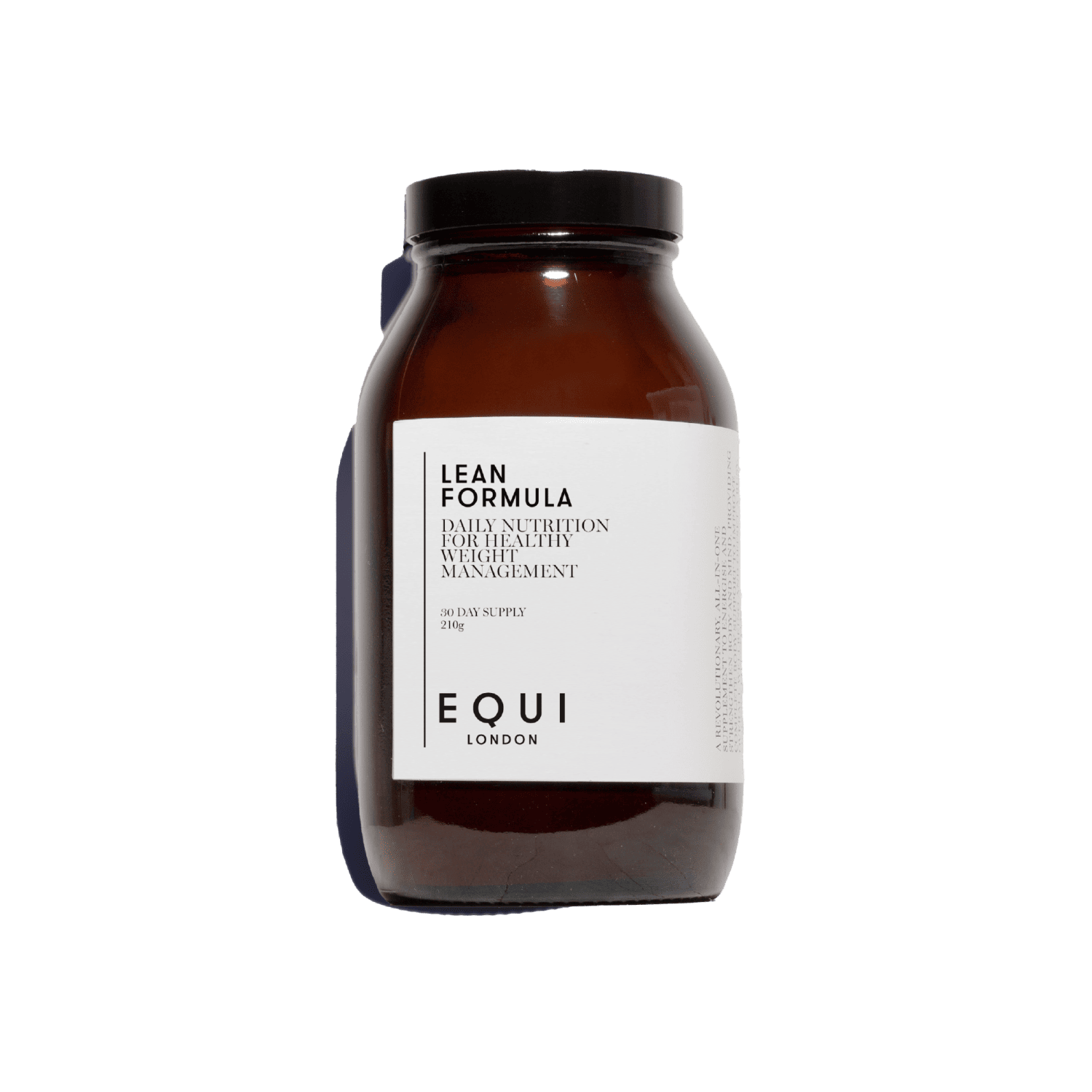
We know that life can sometimes be a rollercoaster of ups and downs, triumphs and trials, joy and, sometimes, a touch of the blues. This is especially true after the summer holidays when we're left facing the reality of returning to our regular routines. But did you know that what you eat can have a significant impact on your mood and overall mental wellbeing? Your diet is not just about physical health and maintaining your body shape, it plays a vital role in your mental health, too. Understanding more about the foods that can support mood, gives you an additional tool in your arsenal to combat those occasional down days.
Scientific research is continually expanding our understanding of the profound connection between the gut and the brain, often referred to as the gut-brain axis. For example, it has been found that certain nutrients have the ability to influence neurotransmitters – the body's chemical messengers that regulate mood. By incorporating these mood-boosting foods into your daily diet, you can provide your body with the tools it needs to help keep those blues at bay.
In this blog, we will delve into each neurotransmitter's role in managing our mood, how the gut-brain axis works and highlight the mood-boosting foods you should always include in your diet. With this information, you will have a guide, like a 'mood food' checklist, to help you in making dietary choices that foster a more balanced mood! Mental health is just as important as physical health, and it’s important we give it the attention it deserves. So, if you've been feeling a little low or are simply interested in learning more about how your diet can influence your mood, keep on reading! It's time to nourish not just your body, but also your mind!
Understanding Our Neurotransmitters: The Chemical Messengers of Mood
The human brain and gut is an intricate network where numerous chemical messengers, known as neurotransmitters, facilitate communication between billions of neurons. Three key neurotransmitters involved in mood regulation are serotonin, dopamine, melatonin and gamma-aminobutyric acid (known as GABA). Let’s take a closer look at how:
Serotonin
Often dubbed the 'feel-good' neurotransmitter, serotonin is integral to our mood, sleep, appetite, and even cognitive function. It's produced from the amino acid (protein) tryptophan, in the brain and the gut, illuminating the significant role our digestive system plays in our mental wellbeing. What’s more, serotonin goes on to produce the sleep neurotransmitter melatonin. The connection between these two chemicals is intricate, as melatonin is synthesised from serotonin in a series of steps, which involves specific enzymes. A low level of serotonin is associated with depression and anxiety (1) and when serotonin levels are low, it might also affect melatonin production, potentially leading to sleep disturbances. So, maintaining adequate serotonin levels is essential not only for mood regulation but also for proper sleep patterns.
Dopamine
Known as the 'reward' neurotransmitter, dopamine is involved in pleasure, motivation, and learning. It's synthesised in several areas of the brain from the amino acid tyrosine and is responsible for the sense of satisfaction and happiness we experience when we achieve a goal, enjoy a meal, or engage in a positive activity. Essential cofactors and nutrients involved in dopamine production include vitamin B6, iron, and folate (vitamin B9). Proper intake of these nutrients can support optimal dopamine synthesis, whilst, dopamine deficiency can lead to feelings of apathy, fatigue, and lack of motivation, symptoms often seen in depression (2).
GABA
This is the 'calm' neurotransmitter, which works by slowing down neuron activity, helping us to feel calm, relaxed, and can reduce anxiety. It is produced in the brain from glutamate, another neurotransmitter, in a process that requires vitamin B6. Its primary role is to decrease neuron ‘excitability,’ acting as a calming agent, and counterbalancing excitatory neurotransmitters, such as glutamate. However, lots of factors can contribute to reduced GABA levels. For example, chronic stress and prolonged exposure to stress hormones like cortisol can diminish GABA production (3). Also, specific genetic mutations can influence GABA production, leading to lower levels in some people (4). Reduced GABA function has been linked with mood disorders like anxiety and depression (5). Therefore, maintaining a balance between inhibitory and excitatory neurotransmitters is crucial for optimal brain function and supporting mood.
Melatonin
Melatonin, commonly recognised for its role in sleep regulation, also plays a significant role in mood regulation. This hormone is secreted by the pineal gland in response to darkness, setting our body's internal clock, or circadian rhythm, and promoting sleepiness. Beyond its main function in sleep-wake cycles, emerging research shows that melatonin interacts with neurotransmitters and hormones that influence mood. Dysregulation in its secretion can lead to sleep disturbances, which subsequently impacts mood. Disrupted sleep patterns are also commonly associated with mood disorders such as depression. Melatonin also has an anti-stress effect, reducing cortisol levels (the stress hormone), which can directly influence mood (6). By helping the body adapt to stress, melatonin potentially offers a protective effect against mood disorders.
Understanding the role of these neurotransmitters is crucial because it gives us insight into how our diet, which provides the building blocks for these chemicals, can directly impact our mood. However, it's essential to remember that neurotransmitters don't function in isolation. They are part of an intricate and interconnected system, which also involves hormones, gut health, and lifestyle factors.
The Gut-Brain Axis
The gut-brain axis is an intricate communication system that connects the nervous system in the digestive tract (known as the enteric nervous system) with the central nervous system, which includes the brain and spinal cord. This pathway enables the gut and the brain to send and receive signals from one another, influencing lots of processes, including mood, digestion, and overall health. We also know that neurotransmitters are produced in both the gut and the brain. Recent studies have also highlighted the vital role the gut microbiome plays in this communication system. In fact, he gut microbiome itself can produce and modulate various neurotransmitters. For instance, certain gut bacteria can produce GABA and similarly, over 90% of the body's serotonin is produced in the gut (7). Moreover, the gut-brain axis is closely linked to the body's stress response. Stress can affect the gut microbiota composition, which in turn can affect neurotransmitter production, brain function and mood (8). This interplay emphasises the potential therapeutic effects that supporting both gut health and the gut-brain axis has for mental health conditions.
Key Nutrients for Mood
Maintaining a well-balanced diet is not just vital for physical health, but it also plays an integral role in our emotional well-being. Several nutrients are directly involved in neurotransmitter production and function, affecting our emotional well-being. By choosing foods rich in these precursor nutrients, we can support our body in maintaining optimal levels of these crucial neurotransmitters. Let's delve deeper into some of these key mood-enhancing nutrients:
Amino Acids
Tryptophan is an amino acid found in foods including turkey, eggs, and cheese and promotes the production of serotonin and melatonin. It is converted into 5-HTP in the brain in the presence of vitamin B6, and is then used to synthesise serotonin (9). Similarly, eating foods high in amino acid tyrosine such as lean meats, fish, dairy, legumes, nuts and seeds can support dopamine production, enhancing motivation and pleasure. So, in a nutshell protein is pretty important in relation to our mood regulation. If you suffer with low mood, do consider your protein intake alongside other factors which may be coming into play. If you follow a plant-based diet, you may need to work harder to ensure you are consuming enough amino acids such as tryptophan and tyrosine that support mood.
Omega-3 Fatty Acids
Omega-3 fatty acids, particularly EPA and DHA, are critical for brain health and function. They have been shown to increase melatonin production by elevating levels of its precursor, tryptophan (10). They also form an essential component of neuronal cell membranes, facilitating communication between brain cells. Omega 3 is found abundantly in fatty fish like salmon, mackerel, and sardines and in chia, hemp, and flaxseeds. Numerous studies have found that a deficiency in omega-3 can lead to mood disorders, while increasing intake and supplementation can improve symptoms of depression (11). Look no further than our Oil Editions to obtain additional omega 3 fatty acids to complement your dietary intake.
B vitamins
B vitamins, especially B6, B9 (folate), and B12, are vital for brain health and mood regulation. B vitamins play crucial roles in the synthesis of neurotransmitters like serotonin and dopamine, assist in energy production, and are needed for the methylation process, which is a process crucial for brain function. Vitamin B6 specifically is required for converting tryptophan to melatonin. Low levels of the B vitamins have been linked to depression, and supplementation has been shown to improve mood in certain cases (12). A good supplement regime should always contain a comprehensive B complex, and Equi Formulas are no exception to this rule. Each Formula contains optimal levels of all of the B vitamins needed for many processes including mood regulation.
Magnesium
Magnesium is often referred to as the "relaxation mineral." It is involved in over 300 biochemical reactions in the body, including those related to neurotransmitter function and mood regulation. It supports the production and function of serotonin, and evidence suggests that it can help manage symptoms of depression and anxiety (13). It is also involved in the production of melatonin and has been associated with improved sleep quality (14). Because this mineral is involved in so many processes, it is a good idea to supplement your diet with more, especially in the right form. This is why we have included a highly absorbable form called magnesium bisglycinate in each our of Formulas.
Vitamin D
The 'sunshine vitamin,' has a well-documented relationship with mood. It is involved in numerous brain processes, and its receptors are even found throughout the brain. Research has shown us that low levels of Vitamin D are associated with mood disorders like depression, and supplementation can improve mood, especially in those with a deficiency (15). Whilst we can produce vitamin D because of our sun exposure, it is still recommended to supplement this key nutrient, especially during the winter months from October-March. But don’t worry, Equi has you covered with the daily recommended intake present in each Formula!
Probiotics
Probiotics are beneficial bacteria that reside in our gut. The gut microbiota communicates with the brain via the gut-brain axis, influencing our mood and behaviour. Certain strains of probiotics have been found to have positive effects on mood and may help in managing symptoms of depression and anxiety (16). For example, lactobacillus sporogenes can produce lactic acid, which not only helps balance gut pH but also positively influences the gut environment. Studies show that it can elevate mood by increasing serotonin levels (17). Research has shown that both bifidobacterium bifidum and bifidobacterium longum can reduce the production of the stress hormone cortisol, linking them to reduced feelings of anxiety and depression (18). Finally, B. longum can also modulate brain activity and balance levels of neurotransmitters, showcasing its profound effects on the gut-brain axis (19). Equi contains all three of these strains, meaning that you can be sure you are supplementing your diet with the most beneficial strains to support mood regulation.
Starchy Foods
Fibre-rich foods, particularly those high in resistant starch like oats, lentils, and bananas, feed beneficial gut bacteria. Our gut microbiota plays a significant role in mood regulation via the gut-brain axis, with a healthy gut microbiome linked with lower risks of mood disorders (20). Whilst probiotic foods inoculate the gut with beneficial bacteria, starchy foods act as prebiotics, meaning they provide food and nourishment for the bacteria to thrive.
Tart Cherries
Tart cherries are among the few food sources that naturally contain melatonin. Consuming the juice of tart cherries has been linked to improved sleep duration and quality (21). In addition to this, the melatonin found in cherries, acts as an antioxidant and might also help combat inflammation and oxidative stress, which can further support overall well-being.
Whilst a balanced diet rich in these nutrients can significantly contribute to mood enhancement and overall emotional well-being, it's important to note that it should be complemented with other lifestyle measures like regular exercise, stress management, and good sleep hygiene for optimal results.
Creating a Balanced Mood Diet: A Practical Checklist
Maintaining a balanced mood, requires a holistic approach, considering diet and other areas like sleep, stress management, and physical activity. Here’s a practical checklist for you to ensure you are not only obtaining all the nutrients mentioned but living your best mood enhancing life!
Balance Your Meals
Ensure your meals (and any snacks) contain a balance of macronutrients such as proteins, complex carbohydrates, and healthy fats. This balance supports stable blood sugar levels, ensuring consistent energy and mood throughout the day. For example, pair a palm sized portion of lean protein, like chicken or tofu, with at least 2 servings of vegetables, approx. half a cup of whole grains such as quinoa or brown rice and include a healthy fat source like a handful of avocado or a drizzle of olive oil. By opting for whole grains, which release energy slowly, you can maintain more stable blood sugar levels, which in turn helps regulate mood (22). For example, swap out any white bread or pasta for whole grain alternatives like oats, whole wheat bread, or brown rice and brown rice pasta.
Prioritise Omega-3 Fatty Acids
These essential fats, found in fatty fish, flaxseeds, and walnuts, can boost mood, and reduce depression (23). Whilst oily fish is the richest source of omega 3, it can be hard to consume enough of this through foods as it is recommended to be mindful of high intake due to heavy metals found in the food chain in foods like fish. We suggest you aim to eat fatty fish like salmon or mackerel twice a week. Plant sources such as flaxseeds are not as bioavailable as fish so supplementation can be much better option to prioritise your intake.
Our Oil Editions contain premium omega-3 fatty acids and are the perfect accompaniment to your Formula. For example, Beauty Oil Edition contains 1000mg of krill fish oil alongside other ingredients supportive of skin health, Menopause Oil Edition contains an optimal dosage of 808mg omega 3, whilst Pregnancy Oil Edition contains the optimal dosage of DHA for the baby’s brain development as well as EPA for mums health. You can purchase our Oil Editions here.
Get Your Daily Dose of Probiotics
Supporting a healthy gut microbiome can influence the gut-brain axis, potentially enhancing mood (24). Consuming fermented foods like yoghurt, kefir, sauerkraut, or kimchi is supportive of gut health. It is also a good idea to consume probiotics in supplement form, which are proven to survive through stomach acid and reach the colon, where they are absorbed and inoculate the gut lining with specific strains of beneficial bacteria.
We have included up to 2.5 billion live cultures in each of our Formulas (aside from Pregnancy Formula) such as Lactobacillus sporogenes, Bifidobacterium bifidum and Bifidobacterium longum, which are all known to have positive effects on mood and may help in managing symptoms of depression and anxiety. To find your Formula, take the quiz here.
Eat Tryptophan-rich Foods
As mentioned, foods rich in tryptophan can increase serotonin, the neurotransmitter associated with feelings of happiness and well-being. Serotonin is also needed to make the sleep neurotransmitter melatonin so by consuming foods including turkey, eggs, cheese, milk, legumes, nuts and seeds, you can achieve a double pronged effect on mood (25) and sleep.
Supplement with Magnesium
Whilst spinach, pumpkin seeds, and almonds are good sources of magnesium, we have a high daily requirement of this mineral that often can’t be met via foods alone. Therefore, its beneficial to consider supplementing this key nutrient. However, not all forms of magnesium are utilised by the body efficiently. The type of magnesium we have included in our Formulas is called magnesium bisglycinate, and this is known to be a natural relaxant. It may even help alleviate symptoms of anxiety and depression (26).
Consider Your Fluids
Firstly, ensure you are hydrating well as dehydration can negatively impact mood. You want to aim for at least 8 glasses (or 2L) of water a day whilst managing caffeine intake. Caffeinated drinks can act as a natural diuretic and while a morning coffee can provide an energy boost, excessive consumption can disrupt sleep and affect mood. We recommend limiting caffeine intake after midday so that your consumption doesn’t affect mood or sleep.
Mindfulness and Sleep
These two factors go hand in hand because through mindful activities, it has been proven that you can support a better night’s sleep. For example, activities like meditation, yoga, deep-breathing exercises and getting out into nature can not only bolster the gut-brain axis, enhancing mental well-being (27) but they can help regulate your body's internal clock. Small changes in your routine can also support a better night’s sleep. For example, by going to bed and waking up at the same time daily, you can support both mood and the gut-brain axis. Mindful activities and good quality sleep also help support normal levels of cortisol (the stress hormone). If cortisol levels are too high, this can negatively impact the production of neurotransmitters, such as GABA. Therefore, by practicing mindfulness and supporting sleep, you can help with neurotransmitter production and mood regulation.
Exercise
Exercise has been extensively studied for its effects on brain health and neurotransmitter production and has a significant influence on mood and cognitive function. Firstly, regular physical activity can boost the release of serotonin, often referred to as the "feel-good" neurotransmitter. More specifically, aerobic exercises such as cardio is associated with increased brain serotonin levels. Exercise has also been observed to enhance dopamine release. In fact, a study demonstrated that running increased the production of an enzyme critical for dopamine synthesis (28). Finally, exercise has also been shown to influence GABA, with one study showing that yoga increased levels, suggesting its potential in not only mood enhancement but anxiety reduction too (29). So, by engaging in regular physical activity you can provide a holistic boost to your brain's chemistry, supporting the production and regulation of crucial neurotransmitters. To understand more about the benefits of exercise, CLICK HERE for our recent blog.
Remember, every individual is unique, so it's important to find out what works best for you and consult a nutritionist or healthcare professional when making significant dietary or lifestyle changes. If you are struggling with your mental health, it is important you seek professional help and support through your GP or healthcare provider.
Reference
-
Jenkins, T. A., Nguyen, J. C. D., Polglaze, K. E., & Bertrand, P. P. (2016). Influence of Tryptophan and Serotonin on Mood and Cognition with a Possible Role of the Gut-Brain Axis. Nutrients, 8(1), p. 56.
-
Belujon, P., & Grace, A. A. (2017). Dopamine System Dysregulation in Major Depressive Disorders. International Journal of Neuropsychopharmacology, 20(12), pp. 1036–1046.
-
Maguire, J., Mody, I. (2005). GABAAR plasticity during pregnancy: relevance to postpartum depression. Neuron, 45(2), pp. 289-292.
-
Enoch, M. A., Hodgkinson, C. A., Yuan, Q., Shen, P. H., Goldman, D., Roy, A. (2010). The influence of GABRA2, childhood trauma, and their interaction on alcohol, heroin, and cocaine dependence. Biological Psychiatry, 67(1), pp. 20-27.
-
Luscher, B., Shen, Q., & Sahir, N. (2011). The GABAergic deficit hypothesis of major depressive disorder. Molecular Psychiatry, 16(4), pp. 383–406.
-
Arushanian, E. B., & Beĭer, E. V. (2002). Effect of melatonin on the psychoemotional state and levels of anxiety and depression in patients with acute coronary syndrome without ST segment elevation. Eksperimental'naia i klinicheskaia farmakologiia, 65(6), pp. 29-33.
-
O'Mahony, S. M., Clarke, G., Borre, Y. E., Dinan, T. G., & Cryan, J. F. (2015). Serotonin, tryptophan metabolism and the brain-gut-microbiome axis. Behavioural Brain Research, 277, pp. 32-48.
-
Foster, J. A., Rinaman, L., & Cryan, J. F. (2017). Stress & the gut-brain axis: Regulation by the microbiome. Neurobiology of Stress, 7, pp. 124-136.
-
Shabbir, F., Patel, A., Mattison, C., Bose, S., Krishnamohan, R., Sweeney, E., & Swift, R. (2013). Effect of diet on serotonergic neurotransmission in depression. Neurochemistry international, 62(3), pp. 324-329.
-
Hibbeln, J. R., Ferguson, T. A., & Blasbalg, T. L. (2006). Omega-3 fatty acid deficiencies in neurodevelopment, aggression and autonomic dysregulation: opportunities for intervention. International Review of Psychiatry, 18(2), pp. 107-118.
-
Grosso, G., Pajak, A., Marventano, S., Castellano, S., Galvano, F., Bucolo, C., & Caraci, F. (2014). Role of omega-3 fatty acids in the treatment of depressive disorders: a comprehensive meta-analysis of randomized clinical trials. PloS one, 9(5), e96905.
-
Young, L. M., Pipingas, A., White, D. J., Gauci, S., & Scholey, A. (2019). A systematic review and meta-analysis of B vitamin supplementation on depressive symptoms, anxiety, and stress: Effects on healthy and 'at-risk' individuals. Nutrients, 11(9), p. 2232.
-
Serefko, A., Szopa, A., Wlaź, P., Nowak, G., Radziwoń-Zaleska, M., Skalski, M., & Poleszak, E. (2016). Magnesium in depression. Pharmacological Reports, 65(3), pp. 547-554.
-
Abbasi, B., Kimiagar, M., Sadeghniiat, K., Shirazi, M. M., Hedayati, M., & Rashidkhani, B. (2012). The effect of magnesium supplementation on primary insomnia in elderly: A double-blind placebo-controlled clinical trial. Journal of Research in Medical Sciences, 17(12), pp. 1161–1169.
-
Anglin, R. E., Samaan, Z., Walter, S. D., & McDonald, S. D. (2013). Vitamin D deficiency and depression in adults: systematic review and meta-analysis. The British Journal of Psychiatry, 202(2), pp. 100-107.
-
Wallace, C. J., & Milev, R. (2017). The effects of probiotics on depressive symptoms in humans: a systematic review. Annals of general psychiatry, 16(1), pp. 1-10.
-
Dinan, T.G., & Cryan, J.F. (2017). The Microbiome-Gut-Brain Axis in Health and Disease. Gastroenterology Clinics of North America, 46(1), pp. 77-89.
-
Savignac, H.M., Kiely, B., Dinan, T.G., & Cryan, J.F. (2014). Bifidobacteria exert strain-specific effects on stress-related behavior and physiology in BALB/c mice. Neurogastroenterology & Motility, 26(11), pp. 1615-1627.
-
Kelly, J.R., Borre, Y., C OB, C.A., Patterson, E., El Aidy, S., Deane, J., & Dinan, T.G. (2016). Transferring the blues: Depression-associated gut microbiota induces neurobehavioural changes in the rat. Journal of Psychiatric Research, 82, pp. 109-118.
-
Howatson, G., Bell, P. G., Tallent, J., Middleton, B., McHugh, M. P., & Ellis, J. (2012). Effect of tart cherry juice (Prunus cerasus) on melatonin levels and enhanced sleep quality. European Journal of Nutrition, 51(8), pp. 909-916.
-
Dash, S., Clarke, G., Berk, M., & Jacka, F. N. (2015). The gut microbiome and diet in psychiatry: focus on depression. Current opinion in psychiatry, 28(1), p. 1.
-
Jenkins, D. J. A., et al. (2002). Effect of a diet high in vegetables, fruit, and nuts on serum lipids. Diabetes Care, 25(5), pp. 951-956.
-
Grosso, G., et al. (2014). Omega-3 fatty acids and depression: scientific evidence and biological mechanisms. Oxidative medicine and cellular longevity.
-
Foster, J. A., & McVey Neufeld, K. A. (2013). Gut–brain axis: how the microbiome influences anxiety and depression. Trends in neurosciences, 36(5), pp. 305-312.
-
Jenkins, T. A., et al. (2006). Influence of tryptophan and serotonin on mood and cognition with a possible role of the gut-brain axis. Nutrients, 8(1), p. 56.
-
Serefko, A., Szopa, A., & Poleszak, E. (2013). Magnesium and depression. Magnesium research, 26(3), pp. 107-114.
-
Sarkar, A., Lehto, S. M., Harty, S., Dinan, T. G., Cryan, J. F., & Burnet, P. W. (2016). Psychobiotics and the manipulation of bacteria–gut–brain signals. Trends in neurosciences, 39(11), pp. 763-781.
-
Foley, T. E., & Fleshner, M. (2008). Neuroplasticity of dopamine circuits after exercise: implications for central fatigue. Neuromolecular Medicine, 10(2), pp. 67-80.
-
Streeter, C. C., et al. (2007). Yoga Asana sessions increase brain GABA levels: a pilot study. The Journal of Alternative and Complementary Medicine, 13(4), pp. 419-426.




